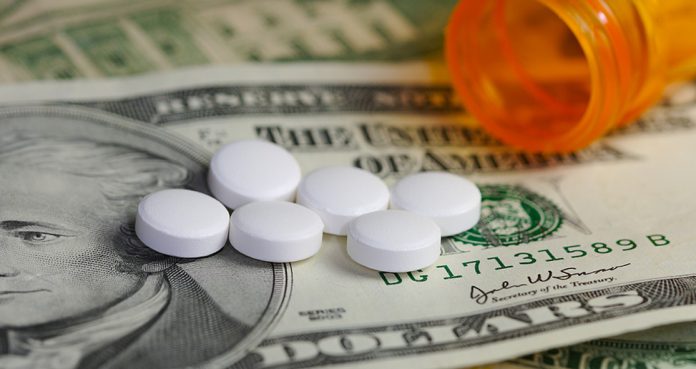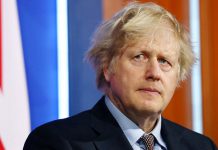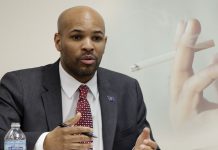Having spent years in the U.S. Centers for Disease Control and Prevention (CDC) lab, Thomas Folks developed a drug to block the deadly HIV virus in monkeys. And then Robert Grant, an AIDS researcher from San Francisco, with the help of $50 million in federal grants, proved that the treatment worked well in people who engaged in risky sexual activity.
Almost fully funded by the American taxpayers, their research created a new use for one of the older prescription drugs called Truvada (Emtricitabine/Tenofovir), preventing HIV infection. However, the U.S. government, which patented the HIV treatment in 2015, has not been receiving money for the use of Truvada that is manufactured by Gilead Sciences, which made $3 billion last year.
The research-based biopharmaceutical company argued that the patents of government for Truvada for pre-exposure prophylaxis (PrEP) are invalid. The government has failed to come to a deal for royalties and other concessions from the Gilead.
Folks, who is retired now, said, “With the amount of effort and time and taxpayer money that went into it, for CDC and Gilead not to come to an agreement, so the taxpayer could get some of that money, is really unconscionable.”
Gilead Sciences, which enjoys a U.S. control over Truvada, charges from $1,600 to $2,000 for a month’s supply of the drug, which can be manufactured for a fraction of that hefty amount. According to the CDC, the number of new HIV infections in the U.S. has barely budged, which has stuck around 40,000 per year.
HIV/AIDS activists want the U.S. government to take a more aggressive action against Gilead. Their complaints are against pharma companies charging hefty amounts by taking advantage of taxpayer-funded research.
James Krellenstein, an HIV/AIDS activist and co-founder of the PrEP4All Collaboration, said, “The CDC has all these patents and is allowing Gilead to rip off the American people at the expense of public health.” He added, “CDC officials are ‘twiddling their thumbs.’”
Neel U. Sukhatme, a professor and patent expert at Georgetown Law, said, “The government is not locked in a battle for profits, like a private company. Rather, NIH and CDC officials see their role as encouraging the commercialization of government-financed discoveries, not placing curbs on them. That tends to take patent infringement lawsuits off the table.
He added, “They may not want to be in the position of suing these companies that arguably are producing valuable stuff.”
The case of Gilead Sciences and Truvada for PrEP adds a new twist to the debates, demanding the U.S. government to be more aggressive when it comes to exercising its own patent to bring down the cost effects of a drug monopoly.
Gilead said that the CDC contacted the company about licensing Truvada for PrEP in 2016.
“Since that time there have been several phone discussions and the exchange of about half a dozen letters addressing the parties’ concerns and positions,’’ Gilead said in a written statement in response to questions from The Washington Post. However, the company denied discussing details of the calls and letters due to a confidentiality agreement with the CDC.
In the State of the Union speech last month, President Trump said the government is setting a goal of eradicating HIV/AIDS by 2030. And to come close to that goal, experts say, Truvada for PrEP should be made available nationwide. Trump’s budget plan revealed this month would add $291 million to combat HIV/AIDS.
After getting approval from the FDA, Gilead stared marketing Truvada in 2004 to treat people who were already infected by the virus. Consequently, CDC researchers were looking from drugs that would curb or end the HIV epidemic by blocking the virus from infecting healthy people even if they engage in unprotected sex.
Truvada doses were provided free of charge to test in the monkeys at CDC labs in Atlanta. The CDC applied for its patent after the drug was shown to work as preventive medicine in monkeys.
The National Institutes of Health (NIH) granted permission to conduct more clinical trials and this time in humans. It was found that the drug reduced the risk of contracting HIV by nearly 92 percent.
In addition to $50 million from taxpayers, $17 million came from the Bill & Melinda Gates Foundation. Based on human clinical trials, Gilead won FDA approval to market Truvada for PrEP in 2012.
HIV/AIDS activists were upset with the price of Truvada for PrEP for years, even though most private and government insurers cover the drug.
Gilead’s Truvada patent will expire in 2021. So, it could be at least two more years before the manufacturer faces low-cost competition in the U.S. The company said, citing trials, “Limited awareness and societal and structural barriers, rather than cost, have hindered broader Truvada usage.”























